Here’s a tried-and-true tactic I’ve been using for years to build my stable of good paying gigs.
You can start on this today, or anytime you have forty-five minutes or so to sit in front of the computer.
While the results aren’t immediate, they are quite powerful over time.
 Following The Money
Following The Money
Every year, even through COVID, in almost every region of your state/province/country, there are grants awarded to “presenting organizations” to book a series of performances.
(A presenting organization is a venue or entity that hosts live performances for the community – theaters and arts centers are presenting organizations, as can be libraries, town governments, and anyone else who schedules events.)
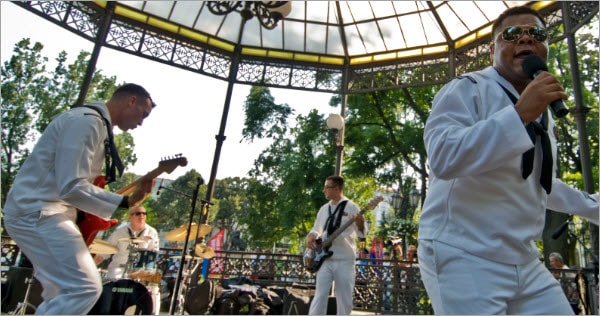 These organizations have at least two things going for them as far as we artists are concerned:
These organizations have at least two things going for them as far as we artists are concerned:
1) they’re dedicated to booking a series of quality performances for their communities
2) they know how to secure funding to pay for those performances
Wouldn’t it make great sense for us to know exactly which organizations in our area are receiving grant money to book programs?
And further, shouldn’t we be making sure that each one of them knows who we are, what we do, and how happy our audiences have been with us?
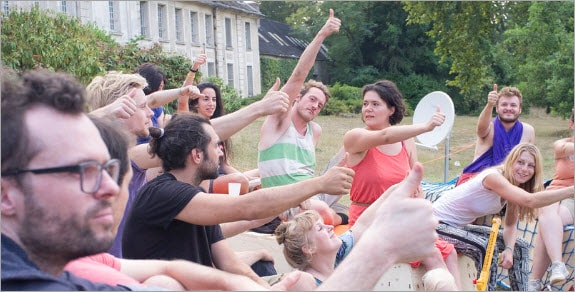 It’s a simple case of following the money, and it works.
It’s a simple case of following the money, and it works.
Get Good Paying Gigs: Here’s the Technique
Step #1 – Google
Unfortunately, there’s no definitive website I can point you to for discovering the organizations that have been awarded arts presenting monies over the last few years in your area.
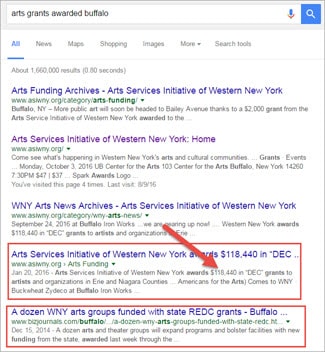 However, a couple of internet searches like the following should get you off to a good start:
However, a couple of internet searches like the following should get you off to a good start:
“arts grants announced Buffalo” (substitute your town/city/region for mine)
“arts grants awarded Buffalo”
You’re looking for press releases and arts council websites describing who got these grants in the last fiscal cycle, and what the funds will be used for.
Keep your eyes peeled for terms like “presenting,” “performances,” “programming,” etc – organizations securing money for these objectives are the ones you want to target.
(COVID UPDATE: For organizations that generally receive funding but are currently unable to host live performances, some are allocating those funds to booking “virtual” performances.)
Over time, you’ll come to know the exact websites you can go to quickly for this information.
For now, spend some time doing searches.
 Once you’ve found a good source of information, try going back through 2-3 years of announcements, as the grantees can change from year to year, and all are potentially relevant.
Once you’ve found a good source of information, try going back through 2-3 years of announcements, as the grantees can change from year to year, and all are potentially relevant.
Step #2 – Assess
For each organization that has been awarded grant funding for programming, take a look at their website to discover what they do and who they’ve booked.
What types of performances do they seem to prefer? Is there a fit with what you do?
After all, there’s no sense reaching out to a classical music organization with your “juggling around the world” show. (Or, is there?)
Step #3 – Contact
Reach out to each presenting organization that seems like a potential fit for you – find out who does the booking, and ask how they’d prefer to receive your materials.
Add them to your list, and keep in touch with them.
It may take several contacts over time before they decide they’d like to talk to you about a booking, but these are solid potential clients that you want to develop a long-term relationship with.
 Much of the grant money will have been spent or committed by the time you get in touch. In fact, these organizations often know who they want to hire before they even apply for the grant. What you’re doing is getting (and staying) on their radar so that the next time there’s a grant in the works, you’re one of the performers they want to hire. It works! (And, you may even catch them as they’re working on the next grant application…)
Much of the grant money will have been spent or committed by the time you get in touch. In fact, these organizations often know who they want to hire before they even apply for the grant. What you’re doing is getting (and staying) on their radar so that the next time there’s a grant in the works, you’re one of the performers they want to hire. It works! (And, you may even catch them as they’re working on the next grant application…)
Step #4 – Expand
How far are you willing to travel for a gig? Could you widen your internet search now to include other regions or states or provinces or even countries?
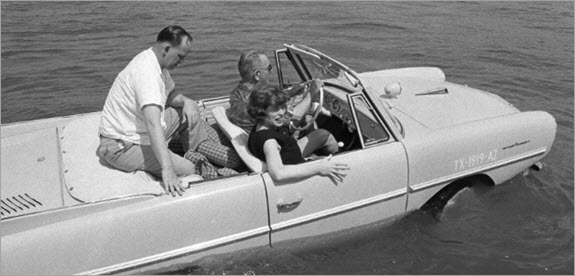 Obviously, this will expand your opportunities.
Obviously, this will expand your opportunities.
Step #5 – Repeat
Searching for grant recipients is just one of those ongoing tasks of the independent performing artist.
Bookmark the websites you’ve found, and revisit them occasionally for the latest in who’s been awarded what.
That’s It!
Using this technique, I’ve identified dozens of good paying venues I might otherwise have missed over the years, and many have gone on to hire me for performances.
Pretty simple, really.
And, of course, once you’ve worked for them, you become a known entity and someone they want to have back.
Have You Tried This? Had Any Luck?
The “Comments” section is just below.
About The Blog
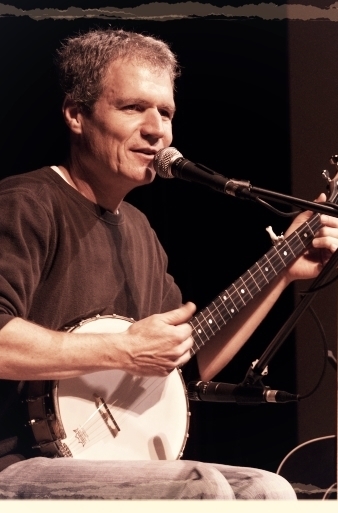 Since leaving a white-collar marketing job in 1992, Dave Ruch has been educating and entertaining full-time in schools, historical societies and museums, folk music and concert venues, libraries, and online via distance learning programs.
Since leaving a white-collar marketing job in 1992, Dave Ruch has been educating and entertaining full-time in schools, historical societies and museums, folk music and concert venues, libraries, and online via distance learning programs.
Along the way, he’s learned a great deal about supporting a family of four as a musician.
The Educate and Entertain blog provides articles, tips, encouragements, and how-to’s for regional performers (in any region) interested in making a great full-time living in the arts.


Great advice! Thank you for sharing this!
Glad it was helpful Abigail.
Yes this works. Sometimes finding the organizations who have gotten grants is a challenge – even more a challenge is finding the contact person. When I do I check when they submit by. Usually September for next summer grants. I start contacting in July. Also works great if you have a name to drop with their permission – another presenter suggested that we’d be a good fit for your venue. I had contacted one person at a venue for years. Dropped the name of another presenter in town and got 2 gigs out of it. Turns out the presenters father had seen us and also recommended us.
Love it Lisa, thanks for sharing.
Hey Dave
In Minnesota we have the Minnesota State Arts Board and also seven Regional Arts Councils. (The Twin Cities is the “Metropolitan Regional Arts Councill”.) It’s usually best if the venue applies and it should be a nonprofit, or a non profit is needed to be involved to somehow oversee the money. Often in MN these funds are directed towards the audience so the artist and venue need to be clear on who they are targeting and how they will get people in the door. There is follow up documentation for the project to provide a report on how successfully the project met its goals. Sometimes the audience targeted is an underserved community., and there could be any number of reasons a community is underserved. They fund a wide variety of events, art exhibits, theatrical performance, cultural festivals….any of which might need a theme type of musical component. The first application is a lot of work and then it gets easier, cut and paste. These funding organizations have time tables and deadlines, different types of grants can come around twice a year. If you like working with seniors, or kids, there may be grants specific to those settings. Of course this quite different than playing in bars. Hope this is helpful…
Sounds pretty identical to NY, Cindy. Thanks for sharing.
Solid tip – and a good reminder. I used to be a roster artist for our local arts org, so I should know this stuff. Thank you, I’m signing up. 🙂
Hey Jim – glad to know this was useful for you! Good luck with it and keep us posted on your results.
I never thought of this. I’m learning something new everyday!
Glad to hear it Bill.